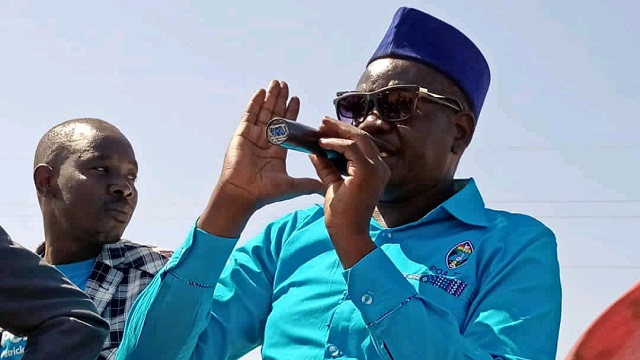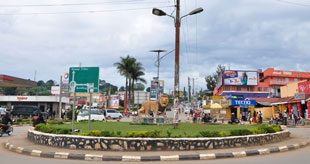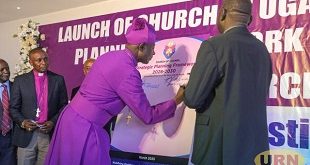
Kampala, Uganda | THE INDEPENDENT | The Forum for Democratic Change-FDC party President Patrick Oboi Amuriat, has said that his party is open to political transition talks, as one of the avenues to achieve change of leadership in the country.
Although FDC, which has for long been Uganda’s largest opposition political party has repeatedly challenged President Museveni in the general election without success, Amuriat says they do not rule out the option of engaging in dialogue as one of the possible ways to cause a political change in the country.
Speaking to Uganda Radio Network at the sidelines of the party’s 2021 elections evaluation meeting held at Vienna Hotel in Masaka on Tuesday, Amuriat said that their doors remain open for transition talks but on condition that they are well structured with a respectable guarantor, even capable of ensuring that the resolutions are fully implemented.
His comments come shortly after a section of leaders in the Democratic Party-DP, entered a cooperation agreement with the ruling National Resistance Movement-NRM government as one of the calculated ways of building unity among different political players in the country.
Although President Museveni recently said that the cooperation agreement he signed with the Democratic Party (DP) in July did not include any agreement on a political transition, Nobert Mao, the DP president insists that the matter of political transition is written all over the document he signed. Mao says that the agreement is mainly about commitment to a peaceful transition, constitutional reforms, and national dialogue.
Amuriat who contested for Presidency in the 2021 general elections says that FDC is currently conducting soul-searching with its leadership and grassroots members to identify the existing operational gaps to help in the reorganization of the party and reawaken its strength after a dismal performance in last year’s polls.
After their internal reorganization, Amurait said they also aspire to broaden talks with other change-seeking forces to agree on the best formulae for achieving their protracted desire for political change.
Yusuf Matovu, the FDC party chairperson for Lyantonde district suggests that the party should embrace vengeance on their aggressors as one of the ways to reclaim their political space and freedoms. He says that he also challenged the party’s top leadership to dedicate more efforts to grassroots mobilization and sensitization to enable the party to cultivate a broad support base capable of propelling it to power.
Kira Municipality Member of Parliament and FDC Spokesperson Ibrahim Ssemujju Nganda, observes that besides evaluating the previous election cycle, the party is also soliciting views from its membership, ahead of the forthcoming National Council meeting which will deliberate on a common strategic plan.
*****
URN
 The Independent Uganda: You get the Truth we Pay the Price
The Independent Uganda: You get the Truth we Pay the Price



